Blood, sweat and gears: How NASCAR's first family stays in pole position

NASCAR has grown from a band of fast-charging outlaw bootleggers to a $3 billion a year motorsport monolith. David Braham discovers how the third-generation France family business maintains the legacy of pioneer Big Bill France while driving innovation, technology, and philanthropy
Brian France may have grown up with the roar of super-charged engines and cheering crowds, the smell of burning rubber on the starting grid and the glamorous legends of NASCAR. But that doesn't mean he was thrown the keys and shown the driving seat at an early age—one of his first jobs was as a security guard.
“I am competitive, so I want to do well,” France declares.
He talks about the Jack Welch test. The test being that “if the best and brightest of Jack Welch—the former head of GE and Brian's neighbour—swooped in and audited your work, you would be at the top of your game.”
Adopting an entrepreneurial spirit at a young age, France forged his own path, working three jobs to prove himself. The commercial wing of NASCAR was where he did just that.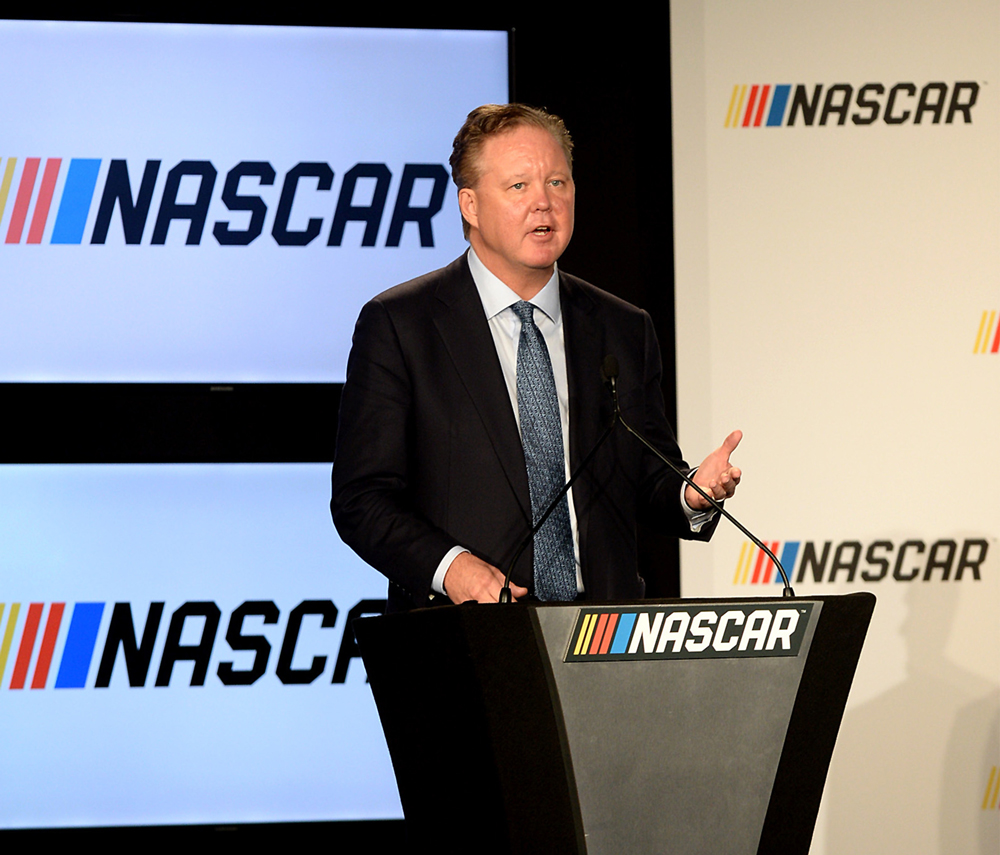
“We were then and we are now, a killer sport. So, if I could deliver sponsorships or marketing, and add value in that way, through television and [other channels], that is where I would be the most valuable.”
France led the effort to consolidate the television package in 1999, which resulted in NASCAR announcing partnerships with FOX, NBC, and Turner Sports, worth $400 million annually for six years.
A year later, he was one of five members of a newly formed board of directors, alongside outgoing president, Bill France Jr, uncle Jim France, Brian's sister Lesa France Kennedy, and Mike Helton. In 2003, he was officially named NASCAR chairman and chief executive.
Lesa was appointed chief executive of the family's second business, publicly-listed International Speedway Corporation (ISC), in 2009—the same year Forbes named her the “Most Powerful Woman in Sports”.
According to Brian, the family made a decision to appoint each sibling to the best suited jobs.
“It was the right decision. [Lesa] was better suited to managing the public company.”
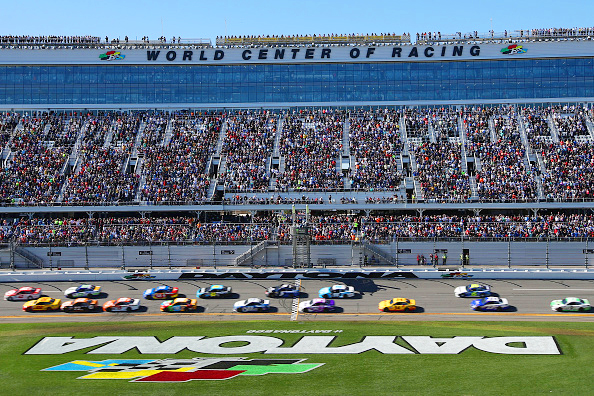
Taking stock
France is the grandson of the late William Henry Getty “Bill” France Sr, who founded the National Association for Stock Car Auto Racing (NASCAR) in 1948. Brian enjoyed explaining the history of America's favourite motorsport when I met him at the France family's brightly lit midtown Manhattan apartment.
Just a few years after the second world war, Bill France Sr started with “an idea, a vision, but with little else—and little capital,” Brian says.
Back in the 1940s and 1950s, stock car racing was disorganised and casual. Race meetings consisted of souped-up cars charging around muddy fields or beaches with large crowds mere metres from the flying racers. Many early competitors were bootleggers—drivers who spent their days outrunning the law to deliver illegal home-brewed whiskey.
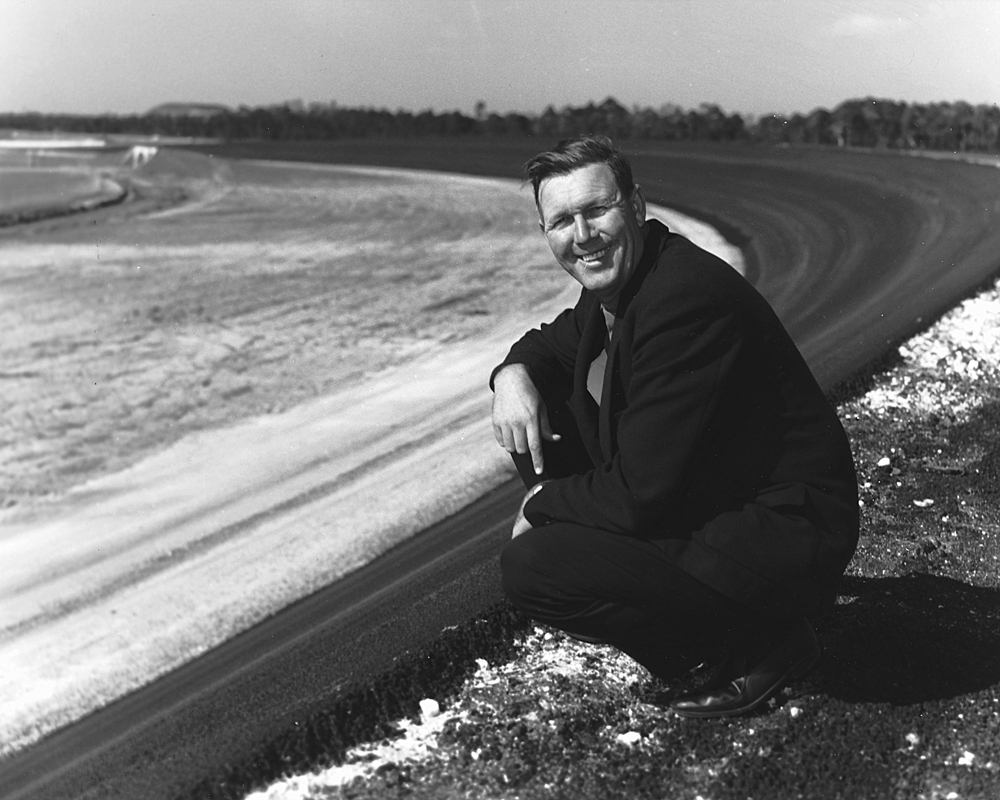 “When you came into a racetrack, you did not know as a driver if you were actually going to be paid,” Brian says.
“When you came into a racetrack, you did not know as a driver if you were actually going to be paid,” Brian says.
“They probably did not have insurance, there was no organisation to it all.”
In 1947, France Sr gathered the influential players at the Streamline Hotel in Daytona Beach, Florida, to discuss the future of stock car racing. NASCAR was incorporated two months later, on 21 February 1948, following its inaugural race at Daytona's beach-road course. According to his grandson, France Sr wanted to create an organised sports structure around auto racing, which included a league.
 Bill was a big character in many ways.
Bill was a big character in many ways.
“You have got to be charismatic,” Brian says.
“You have got to be tough. You have got to have a firm vision, he was all of those things. He was a big guy too, he was 6'5”, 230 lbs.”
With that image, you can understand how he brought order to a sport which was like the wild west frontier. He had to convince the track promoters, drivers, and team owners in the early days to believe in his vision, that auto racing could organise and could award a championship to a driver and a team.
NASCAR royalty
Growing up around a sports family business is all-consuming, with as much talk around the dinner table as the track. Racing celebrities were beloved members of the extended France family.
“We always had cool people over at our house, cool things that happened,” Brian says.
One day, Richard Petty—tied for the most Monster Energy NASCAR Cup Series Championships in history—turned up to drive the family to the airport: “I thought 'Richard Petty, my goodness'. He was driving a minivan and he was whipping through these roads.”
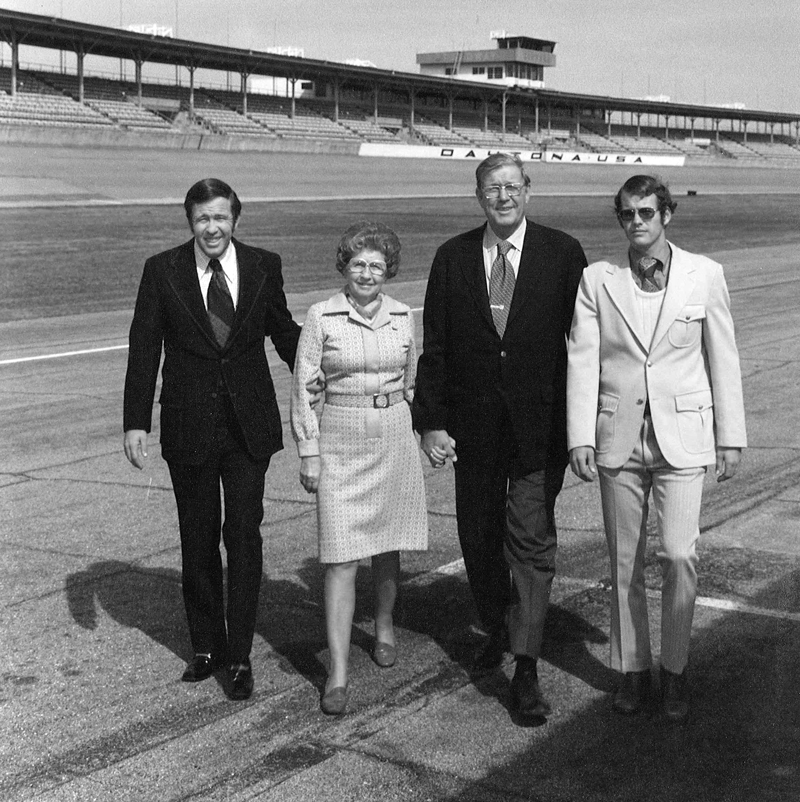
Another time it was US actress Bo Derek who left a lasting impression.
“Her father was the president of Kawasaki. So we all went to dinner one night. Of course, I was a teenager [with my jaw] falling down! We had all kinds of cool stories that we are privileged to have.”
NASCAR is more than just the France family business, it is a sports league, a commercial entity, a racing company, and a technology company. Brian's duties include “not just managing your own family, it is managing the business, and the sector as a whole,” he says.
NASCAR is also about building a legacy from the competition itself to incorporating more technology, or ensuring greater gender and ethnic diversity. According to France, NASCAR is far more competitive today than it was even 10 years ago.
 “The NASCAR racing league is well entrenched, they have got lots of tradition, they have made a lot of rule changes, they have made a lot of changes in the sport, whether its safety, or performance. And we have done the same. Everybody has done things to make the sport more competitive and more popular.”
“The NASCAR racing league is well entrenched, they have got lots of tradition, they have made a lot of rule changes, they have made a lot of changes in the sport, whether its safety, or performance. And we have done the same. Everybody has done things to make the sport more competitive and more popular.”
France talks passionately about the future of technology and making platforms, telemetry (the science of getting data generated by the cars), and other data sources really flowing over time.
“Whether it is green [technology], or technology itself in terms of how we manage events, we have a lot of inherent advantages. Most fans, but millennials in particular, are going to come with a device and they are going to want to have much more of an experience at a sporting event.
“We are going to be pretty aggressive about that. We view technology as our friend.”
Fast women
Female participation is another big play for France and NASCAR. It is not just Brian who is passionate and outspoken on this topic, it is very much a family pursuit.
Brian's wife Amy France points to the female drivers coming through the ranks.
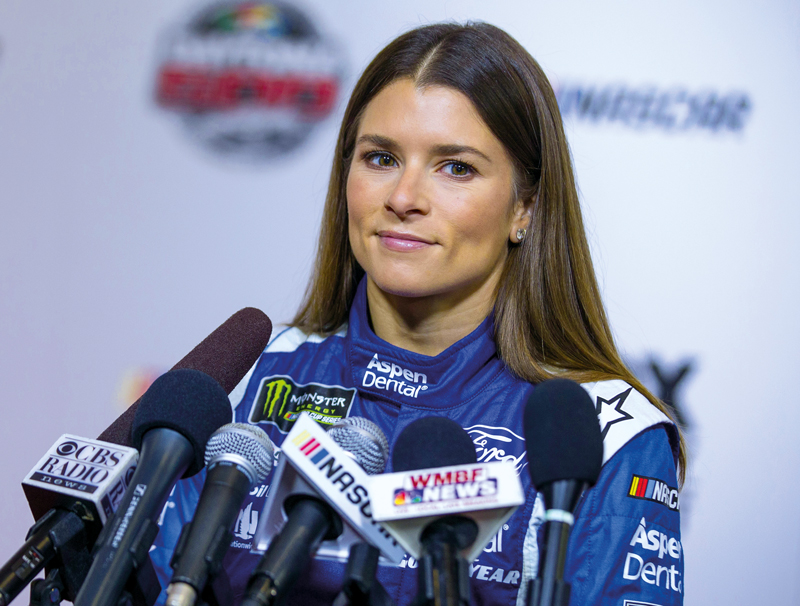 “We are really proud of that and excited about how that will continue. Our little girl is six years old and she is really excited about Danica Patrick [the most successful woman in the history of NASCAR].”
“We are really proud of that and excited about how that will continue. Our little girl is six years old and she is really excited about Danica Patrick [the most successful woman in the history of NASCAR].”
NASCAR is the most gender balanced sport with a 60:40 male to female ratio amongst its fan base. However, Brian is realistic about the task ahead to even the playing field.
“For a real breakthrough to happen, you need stars to win at the highest level. Danica [Patrick] has had a huge impact and is a great ambassador for our sport. Through our programme, we look forward to uncovering future female stars who can win at the highest level.”

Another of Brian's initiatives is the NASCAR Drive for Diversity programme, which aims to attract minority and female individuals to the sport, not only as drivers but also as owners, sponsors, crew members, and spectators.
While competing in the NASCAR Mexico Series in 2011-14, Mexican driver Daniel Suarez was selected for the programme in 2013-14 as well as its sister programme, NASCAR Next Class, which prepares young talents for potential careers in NASCAR, in 2011-13. The 25-year-old became the first foreign-born driver to win a NASCAR national title, then the first Mexican-born competitor to race full-time in the Monster Energy NASCAR Cup Series, the sanctioning body's top level tournament.
One of the biggest changes in NASCAR and the France family over the last year was the passing of Betty Jane France, Brian's mother. Betty was the founder and chairwoman emeritus of the NASCAR Foundation, dedicated to helping children live happier and healthier lives.
“She had a wicked sense of humour, which sometimes surprised people,” France says.
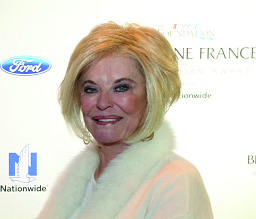 “Betty was very lovely, she was petite and slight in build, but she could hold her own with a table full of men like you would not believe, in particular with poker. She would go to very serious poker tournaments, sometimes with poker professionals. Oftentimes she would be the only female at the table. And I have to tell you, it was more common than uncommon that she would walk away with the whole table.”
“Betty was very lovely, she was petite and slight in build, but she could hold her own with a table full of men like you would not believe, in particular with poker. She would go to very serious poker tournaments, sometimes with poker professionals. Oftentimes she would be the only female at the table. And I have to tell you, it was more common than uncommon that she would walk away with the whole table.”
Betty Jane also taught Brian, Lesa, and Amy about the important role family members have to play.
“She was really instrumental in building those [long-term] relationships [with internal and external stakeholders],” he says.
“She was great at that.”
The good oil
Betty's legacy inspired Amy and Brian to set up the Luke and Meadow Foundation, named after their six-year-old twins, in 2011. The foundation's mission is to drive progress on issues which threaten the health and wellness of children.

Brian and Amy hope Luke and Meadow take on the foundation as their own when they are adults, but they already play a role in the foundation and the sport.
“The children understand that some families and some children are less fortunate, that they do not have some of the privileges our children do,” Amy says.
“They understand that basic needs, such as shelter, food, clothing, and access to doctors are not available and accessible to all children. There is some primary understanding of what we are doing.”
Brian, Amy, Luke, and Meadow have taken great pleasure in personally hosting child cancer survivors and their families at races since 2015. The Frances also support Gabrielle's Angel Foundation and its annual Angel Ball, which has raised $27 million for blood cancer research since 1996. After the Frances were honourees at the ball in 2015, Amy took a larger role in 2016, assuming the position of co-chair and helping to plan the annual benefit and boost its impact.

As Brian and Amy look to the future, our conversation moves to succession and the fourth generation. Luke is a NASCAR enthusiast and a big supporter of his first cousin Ben Kennedy, the only member of the family who drives.
“He watches the race with tears when the race does not go as he expects,” Amy says.
“And there is no one happier and more excited when his favourite drivers are pulling ahead in the lead, in the race. Our son is a true, passionate, dedicated, devoted NASCAR fan.”

Brian's advice for his children as the next generation would be to follow their hearts, even though he hopes to see Luke or Meadow in his chair one day.
“If you are doing that, you are going to be happy. Whatever it may be. If it is in the family business, that is great. And if it is being a great teacher or a pilot, even better. Following what excites you is number one.”
A foot in both camps
One of the major questions facing family business owners is whether to keep their business private or take it public and list it on a stock exchange.
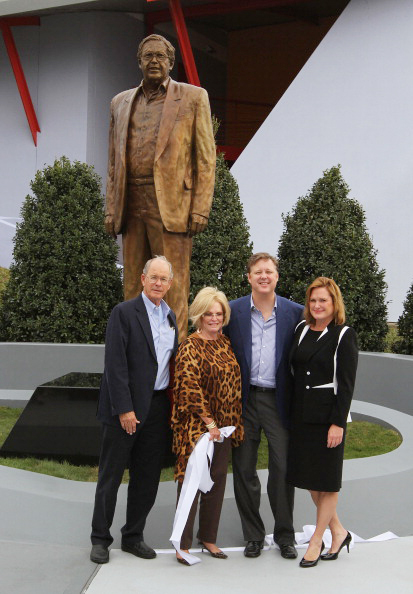
A unique characteristic of the France family and their two family businesses is that one is private, NASCAR, and the other is public, International Speedway Corporation.
One difference between a public and private company is the decision-making process, Brian France says.
“Being a publicly-traded company in the middle of a sports league is challenging. Because earnings are reported, the company sometimes has to make shorter-term decisions that our competitors do not need to make. NASCAR, on the other hand, can keep a longer view.”
France says it is necessary for his public company to access public markets for capital to help fund growth.
Taking a family business public through a listing can get a family the much-needed liquidity for a business to grow in the short, medium, and long term. However, France's message was clear about NASCAR: “I would hope you [the family business owner] would try to keep it as private as you can, that would be the goal.”
A benefit of a public company is creating an environment of transparency and that comes with costs. But taking the family business into a professional space has merit and “keeps family members and everybody else at bay a little bit,” he says.
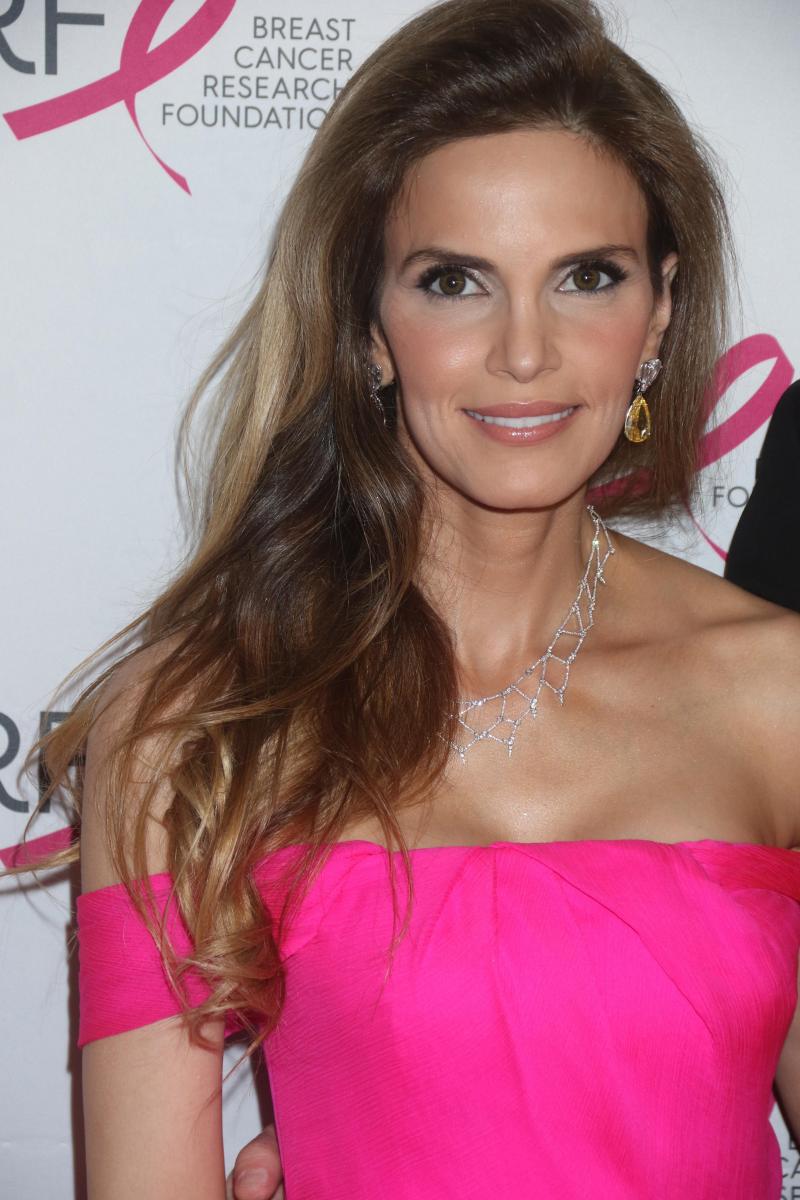 Marrying into a family business
Marrying into a family business
Amy France's role in the family is simple—supporting and giving purpose to her husband Brian and her twins Luke and Meadow—but she has also taken a leadership role in setting up and running the Luke and Meadow Foundation.
Amy married Brian in January 2009. She says marrying into a multigenerational family business was “a lot to take on at a young age.” However, she developed a respect and appreciation for the family business world.
“I am very proud of what the family does. Tremendously proud of Brian. He is a great leader of the family business. And it has been a lot but it has been a privilege.”
Building a support network inside the family, especially with women, is key as motorsport remains a man's world.
Her late mother-in-law was the formidable matriarch Betty Jane France, yet the women grew close.
“Brian's mom was one of my best friends,” Amy says.

Amy's sister-in-law is also an ally. Lesa France Kennedy is chairwoman and chief executive of International Speedway Corporation.
Amy advises women who are about to join a family business through marriage to be themselves.
“If you marry into a situation that has a lot of obstacles and hurdles, and there is not a true appreciation or a respect or affinity for it, things in life do not really work unless it is genuine.”






